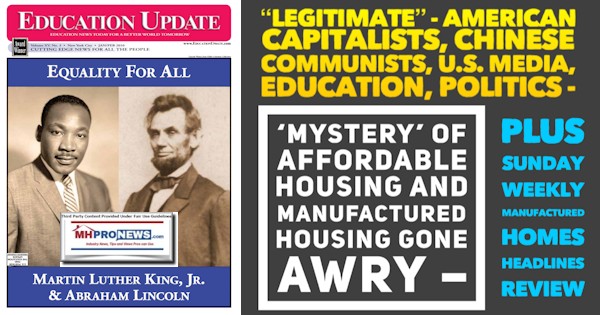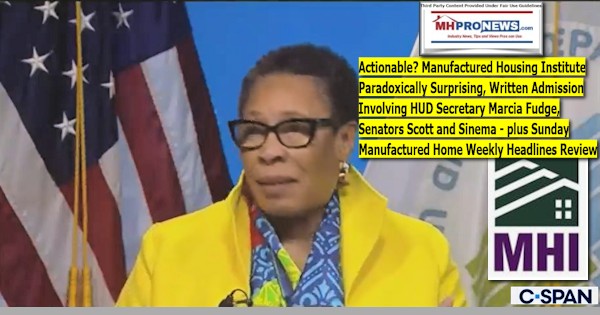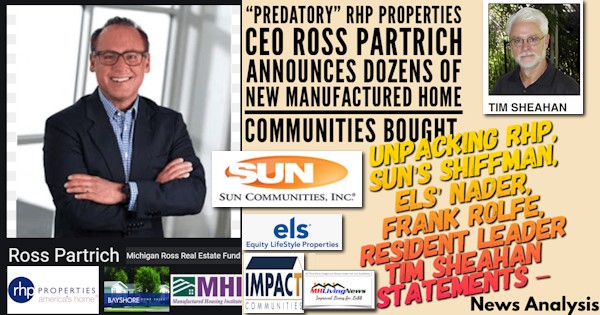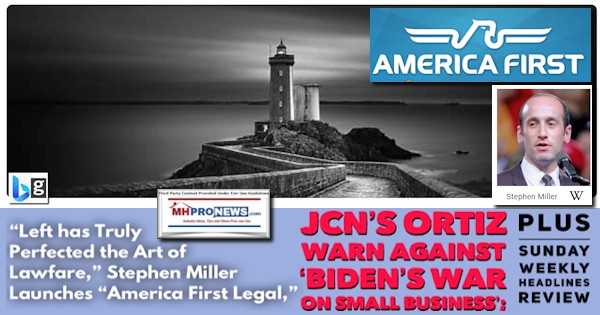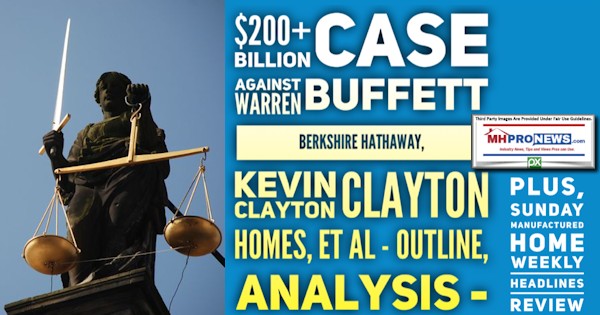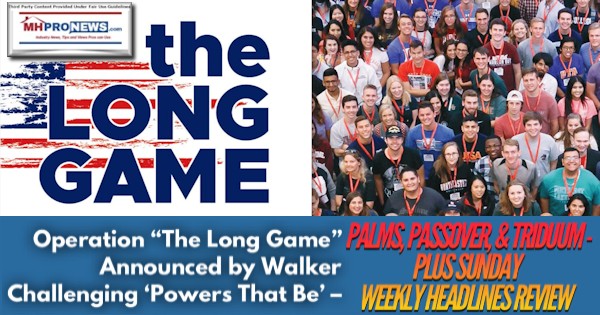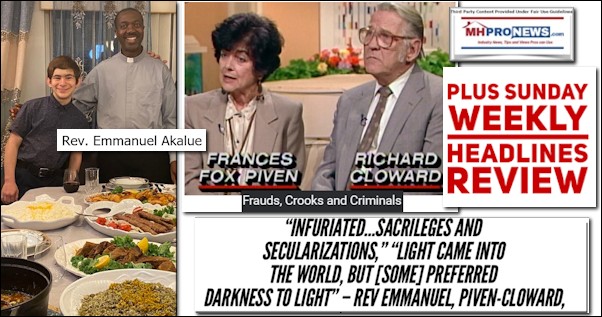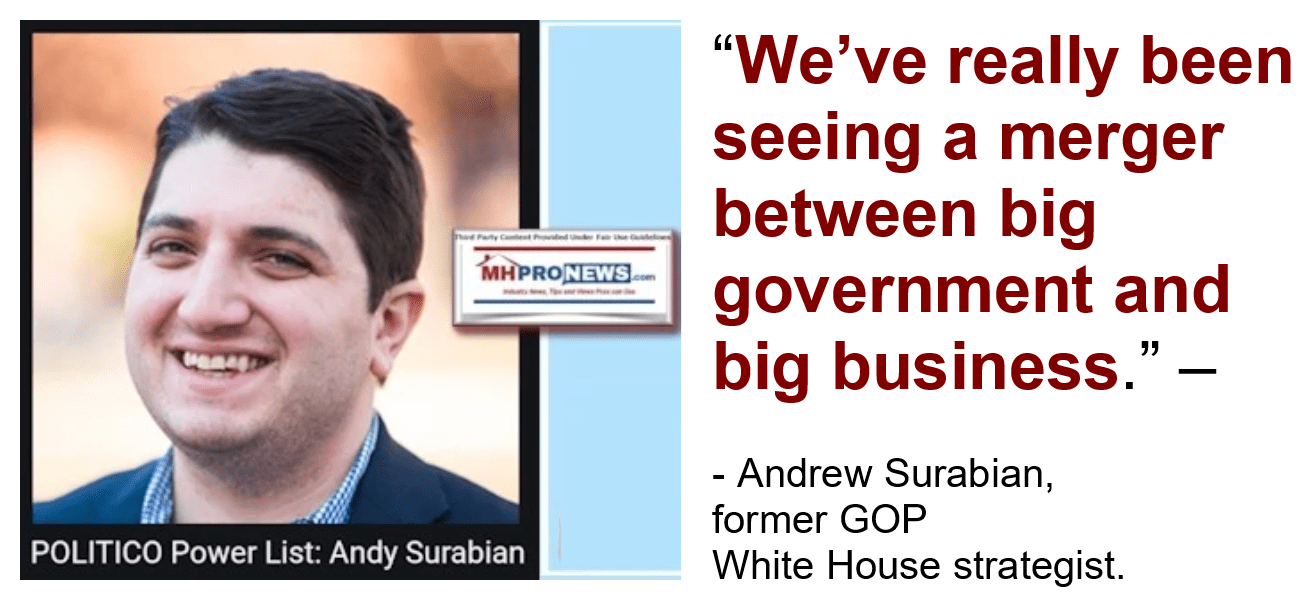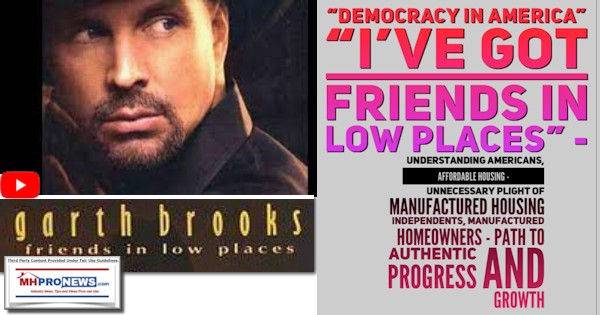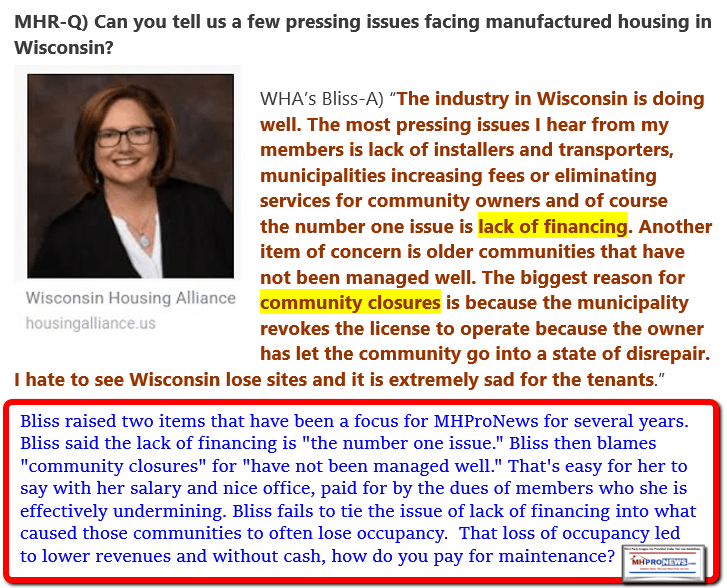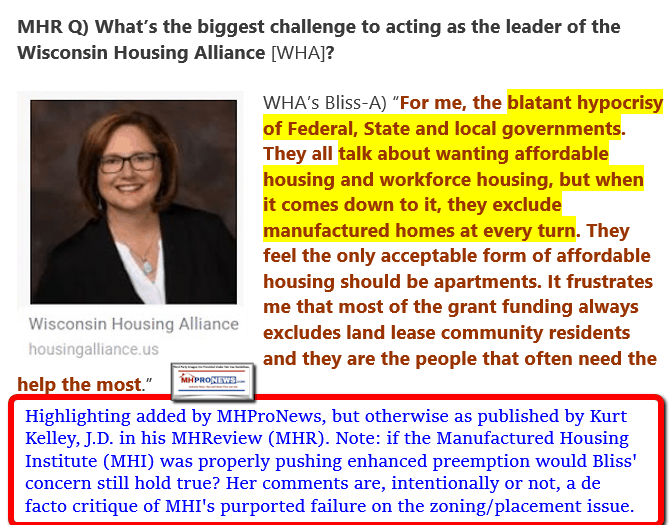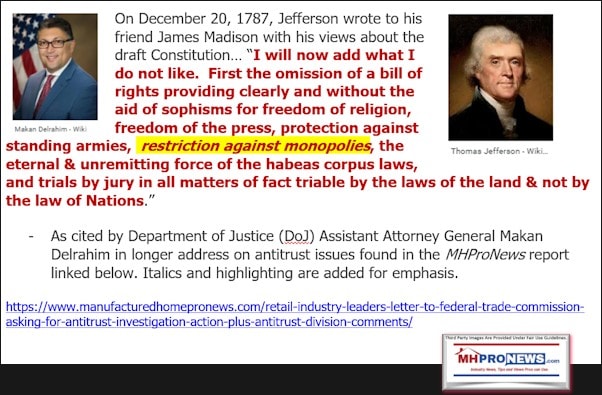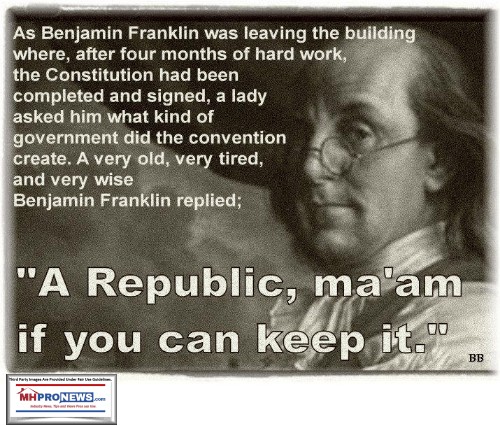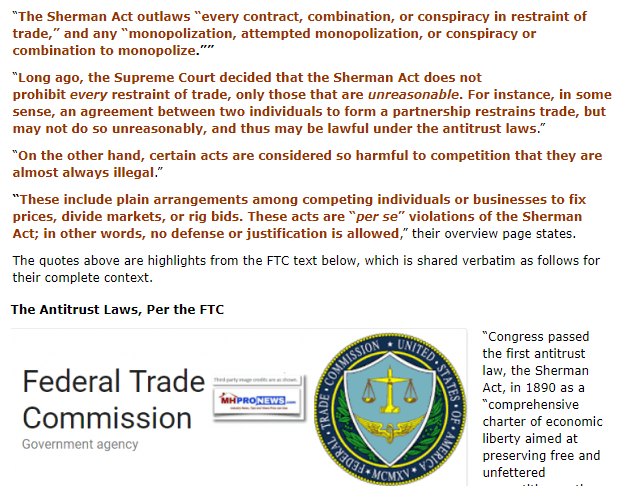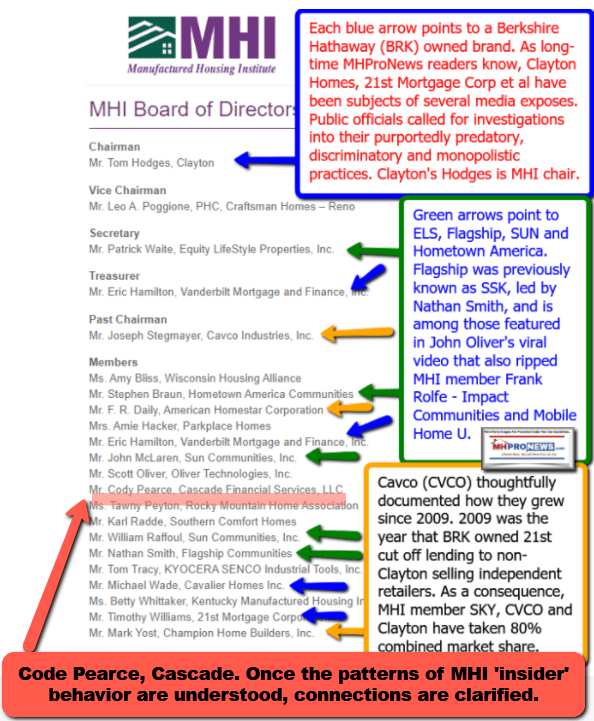Millions of Americans have no aspirations to be on city council or mayor. They do not seek to be on the local school board or serve as a county commissioner, much less be state representative, a U.S. Congressman, Senator, or the President of the United States (POTUS). The everyday person growing up on whatever farm or ranch, in or near whatever town, city, or state routinely wants their slice of the American Dream. They want to be able to live at peace with their neighbors. To enjoy the company of their friends and family. If they are church goers, they want to be able to praise God in peace. Surveys have routinely shown for decades that most people of whatever background want to own rather than rent. If they can’t own, they want to be able to afford their rent and pay their bills with a minimum of stress. Safety and security are on their minds if they have lived in a dangerous neighborhood or in ‘public housing.’ Everyday Americans want to be able to vote for their leaders, and they want those leaders to mean and do what they claimed during the campaign for office. Americans of whatever hyphenated background want to be respected and treated fairly and with dignity. Treat them that way, and the odds are good they will treat you similarly too.
Most aspire to having a stable marriage and a family. Depending on background, education is often tied to a achieving a degree or level of study sufficient to suit their interests, talents, and goals in life.
There are both surveys, interviews, and reams of anecdotal evidence that supports those points. But to grasp the decades long struggles of tens of thousands of manufactured housing independents and the growing numbers of manufactured homeowners, it is ironically useful to go back to a time when there were no manufactured homes, no mobile homes, and no trailer houses at all.
“Americans believe their freedom to be the best instrument and surest safeguard… to secure for themselves a government which will allow them to acquire the things they covet and which will not debar them from the peaceful enjoyment of those possessions.” – Alexis de Tocqueville
Bingo.
But add to that a notable pull quote from Henry David Thoreau: “Most men appear never to have considered what a house is, and are actually though needlessly poor all their lives because they think that they must have such a one as their neighbors have.” That’s found in Thoreau’s book, Walden (1854).
If sufficient numbers of properly motivated manufactured housing professionals grasped these two insights, along with others herein and linked, and our manufactured home industry was being properly presented to the public at large, extraordinary things could occur. Because the case can be made that de Tocqueville made a point that applies today. Namely, that normally people want to be allowed “…to acquire the things they covet and [have a system of government] which will not debar them from the peaceful enjoyment of those possessions.”
Arby’s ran a commercial for years that began with the tagline and premise that “Different is good.” Wendy’s slowly and steadily managed to carve out their piece of the fast food restaurant industry by questioning the quality and quantity found at their larger rival, McDonald’s. “Where is the beef?” is an almost iconic commercial for millions. Wendy’s notes that “Quality is our Recipe.”
With those noted points, why has there been such a lack of imagination among manufactured housing industry leaders – some of whom claim that they are working to expand the manufactured home industry and it’s acceptance? “Different is good,” so our profession’s homes do not have to be exactly like a conventional house in order to be good. Under the provisions of the original 1974 act which established the manufactured home industry, and its later update – the Manufactured Housing Improvement Act of 2000 (MHIA or 2000 reform law) – the quality and durability are assured by third party inspections and state level installation safeguards. If there is a problem, the 2000 reform law provided additional safeguards for “dispute resolution” between seller, installer, factory and buyer that are not found nationally in any other form of far more expensive conventional housing.
Those facts and insights are the basis for a potentially serious effort to change the way Americans see housing in general and manufactured housing in particular.
There are reasons why our MHLivingNews sister site some 6 years ago produced the graphic below with that quote by Thoreau: “Most men appear never to have considered what a house is, and are actually though needlessly poor all their lives because they think that they must have such a one as their neighbors have.” It doesn’t take a survey, although there is such research, to prove that people do not want to feel economic stress. It is only common sense that it is better in many cases to own than it is to rent someone’s primary residence.

Why is it that Clayton Homes and major brands backed MHI went the long way around the obvious? Go straight to the essence of the American Dream. Some want a good steady job that provides them with a home of their own. Manufactured homes are far closer to providing that opportunity than conventional housing. Some Americans want a business of their own. Those who chose to open a manufactured home retail center, or to develop a land-lease community, may not have had any intention or desire to be statewide, much less regional or national. Independents in our profession or others routinely want to be able to provide an honest product with good service, because they know that a bad reputation is often a sure path to going out of business.
In about 1000 words, the essence of a campaign is outlined. Such a campaign could be local, regional, or nationwide. There is no need to have ‘permission’ for such a campaign.
It is worth noting that the independent producers focused Manufactured Housing Association for Regulatory Reform (MHARR) has as its tag line of “Preserving the American Dream of Home Ownership through Regulatory Reform.” At its core, MHARR’s leadership gets it.
MHARR has several vertically integrated members. But the trade group was founded by companies that routinely supplied independent retailers and/or communities and developers with manufactured housing. Because MHARR – a producers or “production” association has witnessed the apparent perversion of the industry by its larger rivals, they urged industry independents for years to forge a new “post-production” trade group that they could partner with to enforce the good laws that exist.
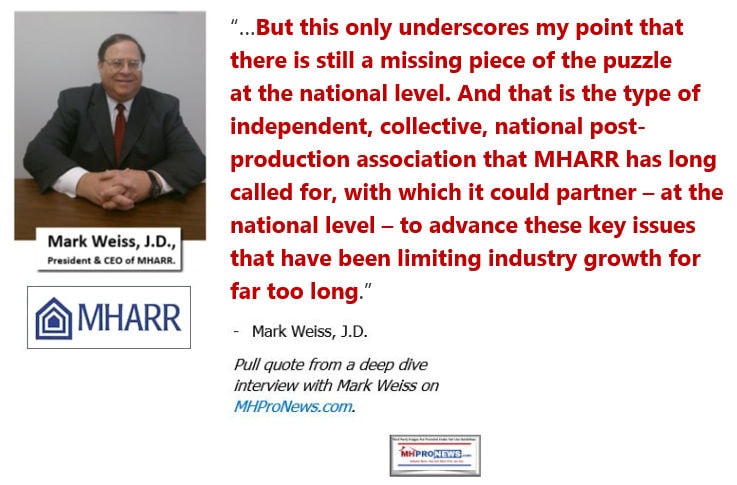
MHARR’s founding president, Danny Ghorbani, is a former MHI vice president. Among the achievements that landed Ghorbani in the RV MH Hall of Fame is that he was instrumental in developing some 200,000 home sites for the industry’s homes. That induction into “the hall” occurred prior to what some are calling its succumbing to overt influence by several MHI member-brands, a separate issue that won’t be the focus today but is worth mentioning for reasons that will become clearer shortly.
In a series of exclusive Q&A style interviews with MHProNews, Ghorbani has focused on zoning, placement, and financing as among the key limitations to the industry. Because there is no post-production trade group at this time, Ghorbani’s new interview published last week made a rather surprising answer as to what must be done and by whom in order to overcome the zoning placement issues that loyal MHI member voices and affiliates assert are getting worse, not better.
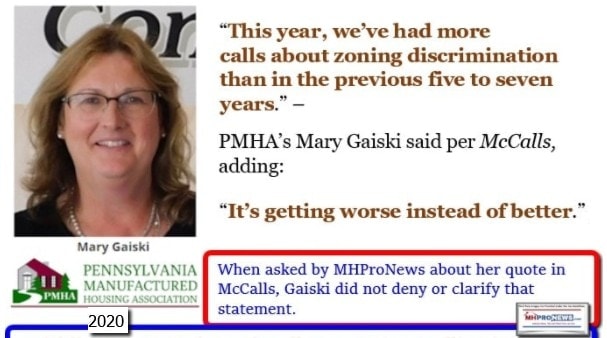
To these issues, Ghorbani provided this previously mentioned detailed insight.
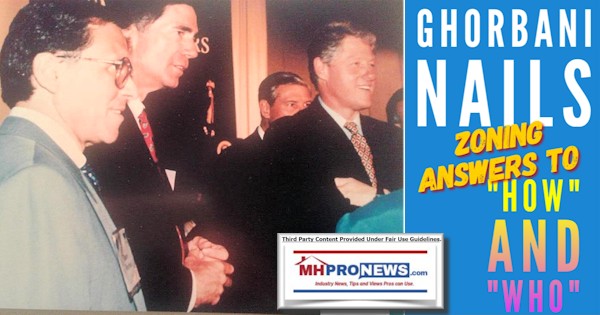
The problems with zoning and placement were highlighted, as was noted in the report above, by a recent MHI so-called news item to their members and readers. It was focused on questions posed by congressional representatives to HUD Secretary Marcia Fudge. But when that CSPAN provided source video to that self-congratulatory MHI news statement was examined, there was nothing good there from the vantagepoint of the concerns raised by Gaiski, Bliss, or others that have been previously quoted by MHProNews and/or MHLivingNews. Instead, it boiled down to fairly short exchange where Fudge pushed back on the very things that MHI claims to be working to achieve.
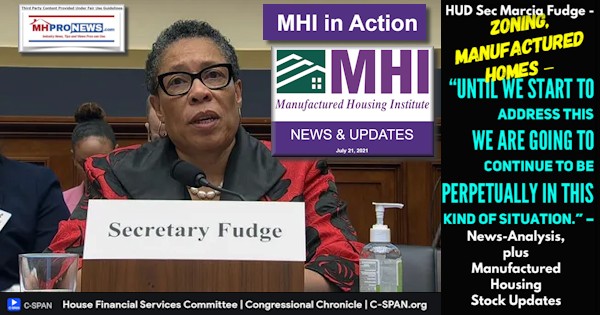
As the report above noted, MHI failed to mention that to their member/readers. Who would benefit from such an omission? Who benefits from zoning/placement and limited financing options? The answer is given by MHI members who are busily consolidating the industry. A lack of growth opportunities are leading to the steady exit of independents from the industry. That trail of exits often results in an MHI member consolidator picking up those assets for what often, though not always, amounts to discounted valuations.
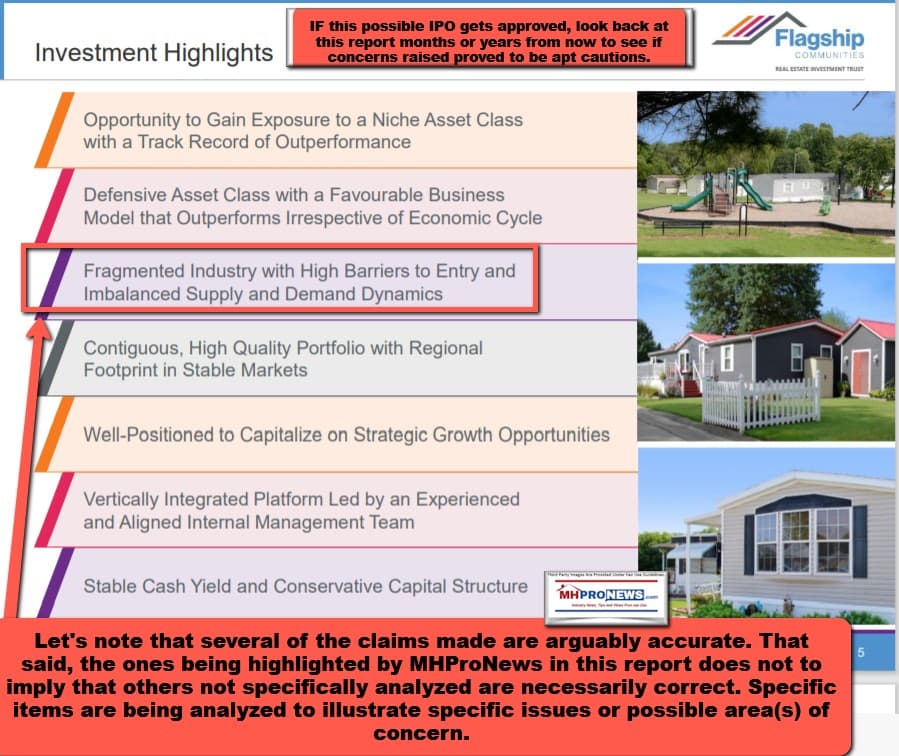
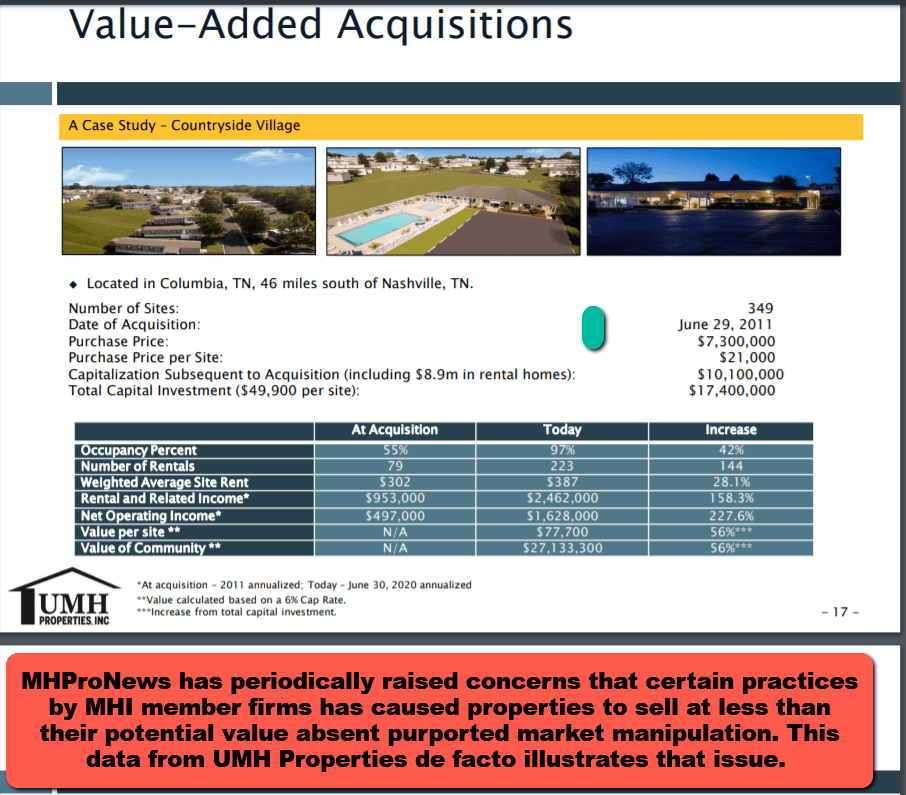
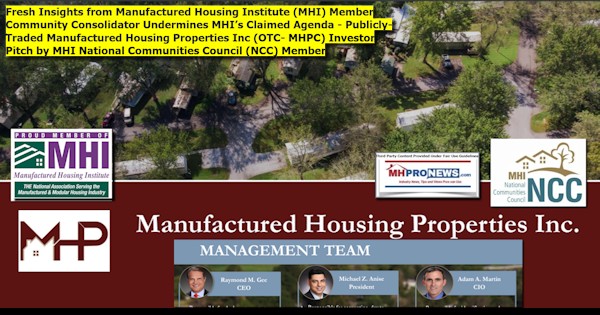
What has MHI said about such vexing claims? There are numerous examples of MHI literally ducking out on public debate.
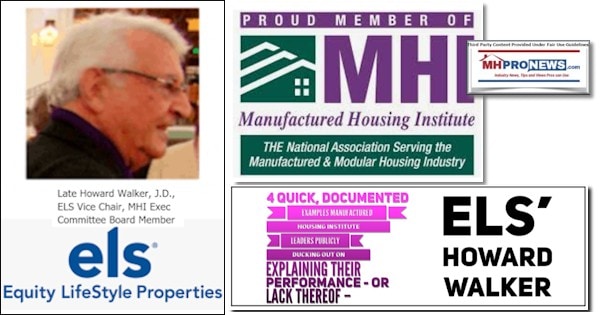
That is despite the arguably false and misleading statement by outside MHI attorney David Goch.
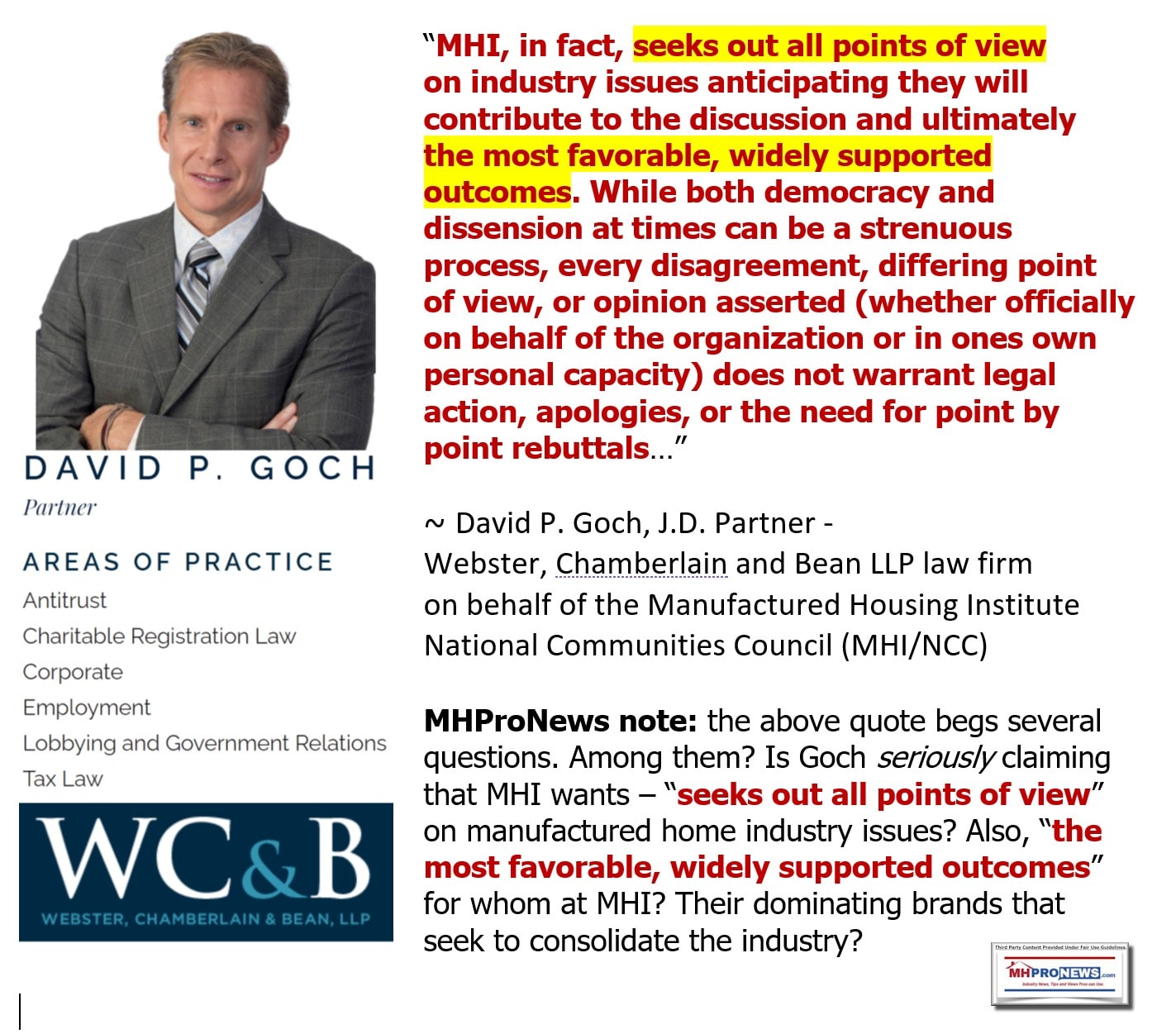

But setting the MHARR producer’s trade group or a possible post-production group that does what MHI claims but has apparently failed to deliver on their own words, let’s return to the opportunities possible for those who are willing to challenge the status quo.
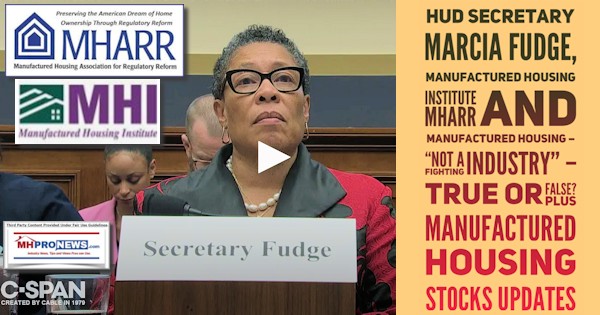
Manufactured Housing’s Potential Growth Pitch?
The argument or marking ‘pitch’ for growth to overcome the stigma concerns that some hold are bolstered by a few more lines from that same passage from Thoreau in Walden. Per Thoreau, “It is possible to invent a house still more convenient and luxurious than we have, which yet all would admit that man could not afford to pay for. Shall we always study to obtain more of these things, and not sometimes be content with less?” In a society that often likes insightful quotations, with untold millions of pages of quotations online, that and the previously noted quotes and insights herein reveal a potentially sound messaging path for growth.
The fact that there aren’t millions of more manufactured homes in existence today can be attributed in part to a failure to follow the logic of incredible opportunity to serve the desires of most Americans.
Why are there so many songs like Garth Brook’s “I’ve Got Friends in Low Places” that includes these following lyrics? Per MusixMatch – “…Cause I’ve got friends in low places. Where the whiskey drowns And the beer chases my blues away…” That refrain followed the opening tongue in cheek lines:
“Blame it all on my roots
I showed up in boots
And ruined your black tie affair…”
It is worth mentioning that ScotBilt homes has a model called “the Garth Brooks.”
Additional Information, more MHProNews Analysis and Commentary
Let’s sum this up and start drawing to a close.
Manufactured homes fulfill key aspects of the American Dream of home ownership. They are demonstrably more affordable. Manufactured homes are the most proven form of affordable housing, as the infographic below reveals. When it comes to ‘stigma,’ there are obvious ways to flip that notion on its head, if leaders cared to look at the facts outlined above and actually seek industry understanding, acceptance, and growth. After all, if manufactured homes – or even pre-HUD Code mobile homes – were good enough for this or that famous celebrity, millionaire, and even some billionaires – why aren’t they good enough for the reset of everyday Americans?

That outline and this report are either an indictment to the industry’s dominating brands and MHI’s incompetence, and/or it is a signal of just how corrupted the manufactured housing industry’s leadership may be. Corrupted? How so? Because the facts and the law support the industry’s case as the most proven form of affordable housing. The new deep dive report linked below makes that clear.

That report breaks new ground that ought to have been reported by mainstream media years ago. It is grounded in federal information and several cited third-party experts’ studies. It does weave in several previously reported items covered by MHProNews and MHLivingNews. But what is new in that report may be jaw dropping for those who have never seriously questioned why the affordable housing crisis in general exists. Because several federal research reports made clear the causes and potential cures.
There is an understandable desire by millions to fix what has gone wrong with the American Dream. We will briefly look at two pull quotes from Alexis de Tocqueville’s “Democracy in America,” volume one.
“Americans believe their freedom to be the best instrument and surest safeguard… to secure for themselves a government which will allow them to acquire the things they covet and which will not debar them from the peaceful enjoyment of those possessions.”
Bingo. That point will be returned to later below, as well as this one. Because this next quote is part of the tension that is often found in democracies around the world.
“The democratic tendency… leads men unceasingly to multiply the privileges of the state and to circumscribe the rights of private persons… often sacrificed without regret and almost always violated without remorse… men become less and less attached to private rights just when it is most necessary to retain and defend what little remains of them.”
Those who have sought to ‘rule’ America for generations – routinely the wealthy, politically and media connected – have understood that a political and legal system can be manipulated. That lies near the center of what’s wrong with affordable housing in America in general and what has gone awry in manufactured housing more specifically. It is also what is at its core a political struggle being waged by giants fighting for their ability to dominate tens of millions of their fellow citizens.
The wealthy and often media-politically connected few have tried to manipulate the system to their own benefit for well over a century. In a sense, that was why an American revolutionary war was fought in the first place. The colonists in what became the 13 original states aimed to throw of the yoke of tyranny by the entitled, wealthy, monarchial rulers and their minions. So it was not just kicking the British king, his troops and emissaries out of what became the United States. As MHProNews has often periodically mentioned, Thomas Jefferson was opposed to the monopolists and thought that anti-monopolistic provisions should have been included in the provisions of the U.S. Constitution.
Personal freedom without economic freedom is simply a myth. Joe Biden has made a recent statement to that effect. “Capitalism without competition isn’t capitalism,” Biden said. As Biden made clear, that statement is meant to reveal the harms caused to everyday Americans by monopolists who are consolidating American business into every fewer hands. Whatever one thinks of Biden and his right to his current job, it is an often revealing and insightful set of statements.
Manipulating information and understanding along with limiting or controlling access to capital are near the core of these issues. Biden said as much, but as Danny Glover described the plight of the nation almost a decade ago it: “It is not only a monopoly of wealth; it is a monopoly of information as well.”
This report and analysis will close with a reminder from Ben Franklin and some insights from ThoughtCo on the distinctions between a democratic form of government, which the founders rejected, and a republic – which has democratic features but is distinctive from a pure democracy.
| Pure Democracy | Republic | |
| Power Held By | The population as a whole | Individual citizens |
| Making Laws | A voting majority has almost unlimited power to make laws. Minorities have few protections from the will of the majority. | The people elect representatives to make laws according to the constraints of a constitution. |
| Ruled By | The majority. | Laws made by elected representatives of the people. |
| Protection of Rights | Rights can be overridden by the will of the majority. | A constitution protects the rights of all people from the will of the majority. |
| Early Examples | Athenian democracy in Greece (500 BCE) | The Roman Republic (509 BCE) |
That same ThoughtCo article aptly says the following. “In a republic, an official set of fundamental laws, like the U.S. Constitution and Bill of Rights, prohibits the government from limiting or taking away certain “inalienable” rights of the people, even if that government was freely chosen by a majority of the people. In a pure democracy, the voting majority has almost limitless power over the minority.”
For those who have studied the realities of American history – not just the hard left’s blasts against U.S. history, or the fairy tale version held by others – there has been a steady struggle by a few to dominate the many. That pattern is hardly new in world events. It has almost always been so, dating back to some of the earliest civilizations in human history. Despite the fairy tale version of history, the native American tribes fought each other and sometimes enslaved or dominated each other. In Africa, it was often blacks who enslaved and sold other blacks. A simple Google search confirms those myth-popping facts. As Wikipedia succinctly puts it, “Slavery among Native Americans in the United States includes slavery by and slavery of Native Americans roughly within what is currently the United States of America.” World History states: “Slavery was practiced by the Native Americans before any Europeans arrived in the region. People of one tribe could be taken by another for a variety of reasons but, whatever the reason, it was understood that the enslaved had done something – staked himself in a gamble and lost or allowed himself to be captured – to warrant such treatment.” Imagine, gambling someone’s freedom away as part of a bet?
But isn’t that what millions of Americans today are doing, without calling it a gamble? When people are bowing down to the power of a corporation, an indirect servitude is being forged. It is with that in mind that Senator Sherman said the following in promoting antitrust – a.k.a. anti-monopolization – laws.
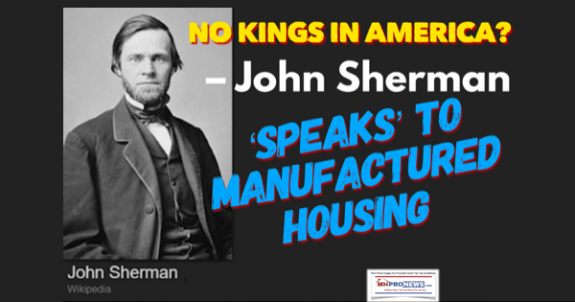
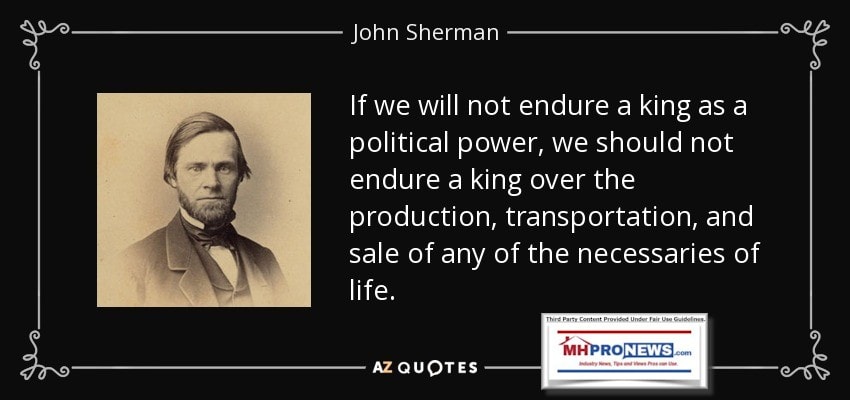
It is not without reason that Minneapolis Federal Reserve researchers James A. “Jim” Schmitz Jr. and Fettig said that “MONOPOLIES: SILENT SPREADERS OF POVERTY AND ECONOMIC INEQUALITY.” Their research specifically addresses some of the problems in our industry, which they attribute to the pernicious efforts of builders colluding with HUD.
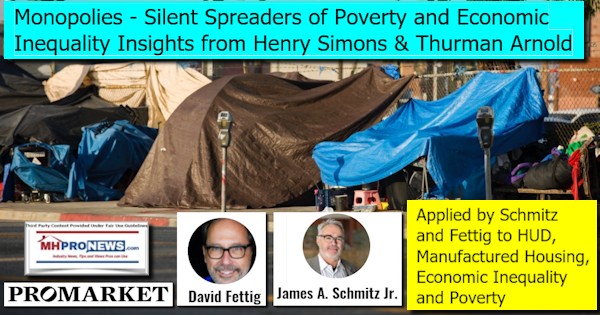
For our profession to thrive, the last 2 decades amply demonstrates that it can be dominated and ruled by a relatively modest number major corporations. More on this is found in the report linked below.
As a teaser for what is ahead, a deeper look into these insights of American history that shed light on how we got to our current crossroads is planned. Stay tuned.
In conclusion, there is a saying that has certain compelling insights. It will be tweaked modestly “When you serve the masses, you can live with the [upper] classes. When you serve the [upper] classes, you live with the masses.” There are hundreds of millions of Americans that desire there part of the American Dream. Housing is one of the necessities of life. Properly understood and marketed, manufactured housing can provide a good living to thousands of smaller business owners. In did so for decades. Kevin Clayton said as much. But when zoning and financing barriers became a struggle, thousands of our industry’s independents were chocked off.
On a personal but related note, this writer – a multiple award winner in history during my formal academic days – tells our teenage son the following. In the natural order, there are two and only two ways to learn. We learn from our experiences. We can learn from the experiences of others. In learning from experience, there are normally two things to learn. What to do, and what not to do.
These life lessons are guided by faith, as de Tocqueville observed too. “The safeguard of morality is religion, and morality is the best security of law and the surest pledge of freedom.”
Once more, see the reports linked above and below to learn more.
###

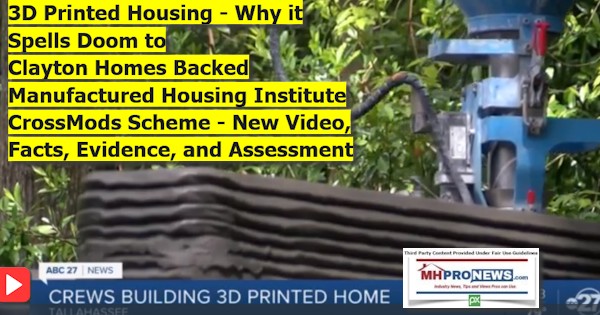



Our thanks to you, our sources, and sponsors for making and keeping us the runaway number one source for authentic “News through the lens of manufactured homes and factory-built housing” © where “We Provide, You Decide.” © ## (Affordable housing, manufactured homes, reports, fact-checks, analysis, and commentary. Third-party images or content are provided under fair use guidelines for media.) (See Related Reports, further below. Text/image boxes often are hot-linked to other reports that can be access by clicking on them.)

By L.A. “Tony” Kovach – for MHProNews.com.
Tony earned a journalism scholarship and earned numerous awards in history and in manufactured housing.
For example, he earned the prestigious Lottinville Award in history from the University of Oklahoma, where he studied history and business management. He’s a managing member and co-founder of LifeStyle Factory Homes, LLC, the parent company to MHProNews, and MHLivingNews.com.
This article reflects the LLC’s and/or the writer’s position, and may or may not reflect the views of sponsors or supporters.
Connect on LinkedIn: http://www.linkedin.com/in/latonykovach
Related References:
The text/image boxes below are linked to other reports, which can be accessed by clicking on them.
